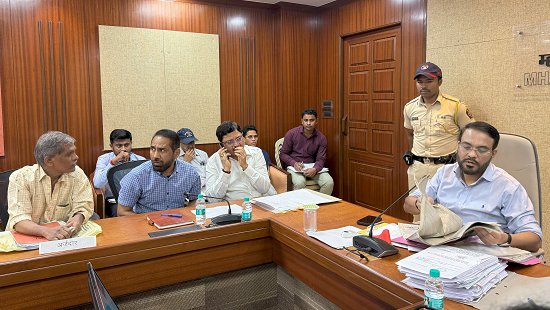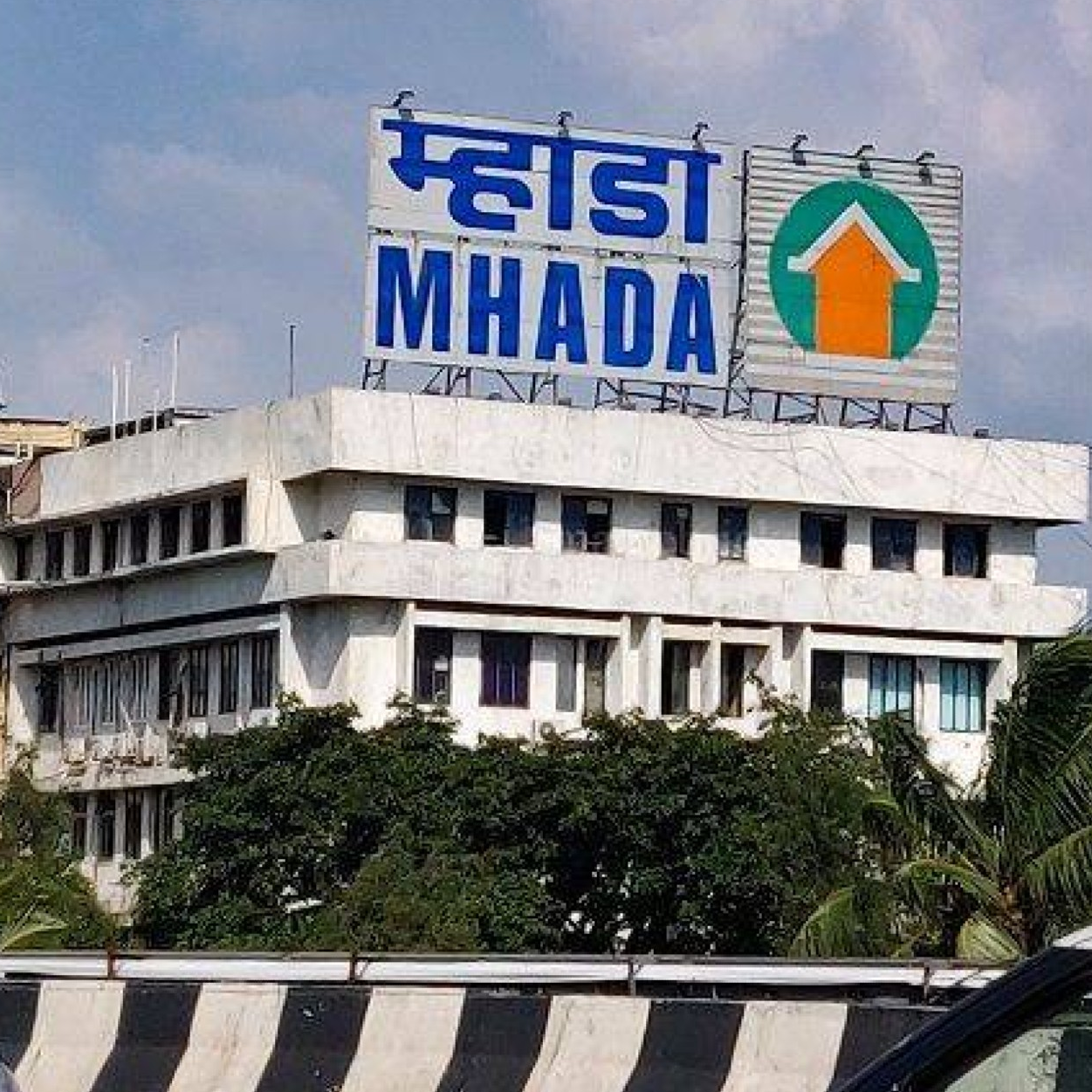
MHADA’s 13th Lokshahi Din Demonstrates Commitment to Citizen-Centric, Transparent Governance
The Maharashtra Housing and Area Development Authority (MHADA) marked another significant milestone in its journey towards responsible and transparent governance with the successful conduct of its 13th Lokshahi Din at Grihanirman Bhavan in Bandra East on 15 September 2025. The event, presided over by IAS Sanjeev Jaiswal, Vice President and Chief Executive Officer of MHADA, reaffirmed the organization’s commitment to prioritizing citizen concerns and delivering swift, practical, and empathetic solutions. With 15 applications heard, the event exemplified how governance can be made more accessible, efficient, and grounded in real-world challenges.
In today’s complex urban landscape, housing concerns are often layered with bureaucratic inefficiencies and documentation delays. MHADA’s Lokshahi Din offers a rare platform where citizen grievances are not only heard but addressed in real time. Shri Sanjeev Jaiswal’s leadership was instrumental in ensuring that each case was handled with dignity and speed, reflecting a governance approach that is rooted in responsibility and social accountability. His intervention-based model of governance is increasingly relevant in a time where public trust hinges on delivery, empathy, and transparency.
Resolving Long-Standing Housing Disputes with Empathy
Among the most striking cases was that of Shri Daulat Adhikari, whose eligibility for permanent housing on MHADA’s master list had been pending for nearly 15 years. This long-pending issue arose from his relocation from a dilapidated cess building in Kamathipura in 1976. Despite applying for inclusion in the master list in 2010, discrepancies in documentation stalled his request. During the Lokshahi Din, Shri Adhikari presented his case before Shri Sanjeev Jaiswal, who promptly ordered officials to hold a hearing. Within hours, the applicant’s eligibility was confirmed, and he was issued an official confirmation letter.
This case is emblematic of the deeper challenges many citizens face – bureaucratic delays, financial hardship, and a sense of helplessness. By resolving the issue within hours, Shri Jaiswal demonstrated that governance, when led with purpose, can significantly impact lives. His leadership affirmed that processes need not be adversarial or exhausting but can instead foster trust, dignity, and progress.
Structured Solutions for Complex Property Disputes
The event also addressed property disputes that often lead to prolonged grievances. For instance, Shri Dnyandev Oroskar sought to include his loft area in the total apartment area during redevelopment at Tulsi Building, Lower Parel. Shri Jaiswal’s response was pragmatic; he instructed the Deputy Chief Engineer to review the case and submit recommendations within seven days, ensuring that the matter would be resolved in line with established guidelines.
Similarly, the case of Smt. Riddhi Waje highlighted the importance of adhering to government norms while offering fair outcomes. Though ineligible due to ownership of two flats, the solution crafted allowed her to retain rightful access to a recently allotted flat by returning one of the units, ensuring compliance without harsh penalties.
Prioritizing Financial Relief and Human Sensitivity
A significant case involved Shri Sahebrao Gaikwad, an applicant from Pune’s Talegaon Dabhade housing scheme under the Economically Weaker Section category. Due to financial difficulties, he was unable to pay the sale price of his allotted flat on time and faced a late fee of ₹75,000. Shri Jaiswal, recognizing the applicant’s plight, waived the penalty and directed officials to ensure that possession of the flat would be handed over immediately. This decision reflected a governance style that combines rule adherence with compassion – a critical approach in addressing the challenges of vulnerable populations.
Addressing Administrative Gaps and Ensuring Accountability
In addition to individual cases, the event tackled systemic issues such as incomplete audits and possession disputes. For instance, Shri Subhash Chapiya’s case concerning pending audits of the Angarki Co-operative Housing Society led to an instruction from Shri Jaiswal to complete the audit within 45 to 60 days. Likewise, possession disputes in Girgaon were addressed through directives to coordinate with developers and governing bodies, ensuring that solutions were not only equitable but administratively sound.
A Broader Impact Across MHADA’s Network
A total of 15 applications were heard during the event. Five cases pertained to the Mumbai Building Repair and Reconstruction Board, six to the Konkan Board, three to the Mumbai Board, and one to the Pune Board. The sheer diversity of cases – spanning property disputes, redevelopment concerns, audits, and financial challenges – underscores MHADA’s broad reach and its ability to address varied housing issues. Under Shri Sanjeev Jaiswal’s leadership, the institution is not merely responding to complaints but actively building systems that anticipate challenges and foster timely interventions.
Governance with a Human Face
What distinguishes this Lokshahi Din from conventional grievance redressal mechanisms is its human-centric approach. Shri Sanjeev Jaiswal’s leadership embodies a governance philosophy that places citizen welfare at its core. His ability to understand each case’s context, navigate bureaucratic complexities, and deliver solutions without unnecessary delays is a testament to a new model of governance – one that balances structure with empathy.
This approach has far-reaching implications for public trust. As housing issues remain among the most pressing challenges in urban India, the responsiveness and integrity displayed at MHADA’s Lokshahi Din demonstrate that government institutions can function efficiently while staying grounded in human realities.
A Blueprint for Future Governance
The 13th Lokshahi Din serves as more than a grievance redressal event; it is a blueprint for how housing authorities and other public bodies can adopt transparent, accountable, and citizen-friendly practices. Through thoughtful interventions, Shri Sanjeev Jaiswal has set a precedent for how governance should operate in the 21st century – proactive, empathetic, and solution-driven.
As MHADA continues to address housing concerns with speed and integrity, it sends a powerful message that development and compassion need not be at odds. By resolving pending cases, waiving undue penalties, and streamlining administrative processes, MHADA’s efforts under Shri Jaiswal’s stewardship offer a model of governance that is both effective and humane – one that inspires confidence and fosters lasting relationships between government and citizenry.
This event not only reflects MHADA’s strengths but also charts the path forward for governance systems across the country, demonstrating that with leadership rooted in empathy, responsibility, and fairness, even long-standing challenges can be transformed into opportunities for meaningful change.



